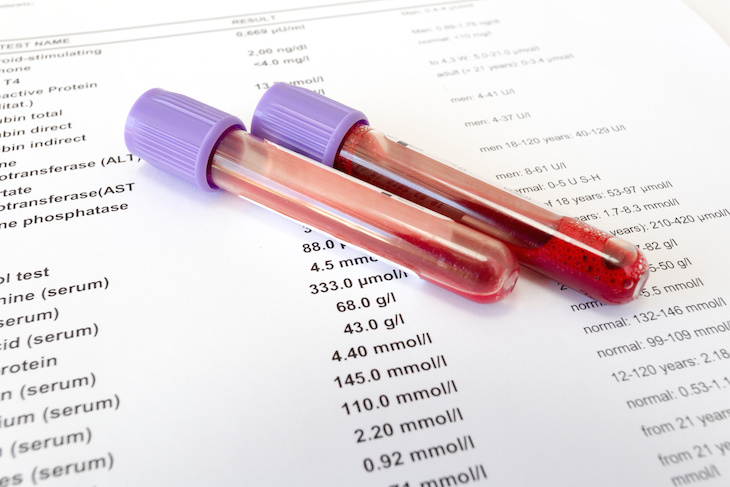There are various ways to get your magnesium levels checked, but since magnesium is found inside our bones, muscles, and brain tissue, it can be problematic to properly determine the amount of magnesium actually in our bodies. Needed for nearly all chemical processes in the body, magnesium helps maintain normal muscle and nerve function, keeps the bones strong, regulates blood pressure, aids in heart function, helps control blood sugar levels, and supports the immune system- just to name a few of the big tasks. There are several tests available to evaluate total magnesium levels, but unfortunately the one most used can often be the least accurate.
There are currently five types of magnesium tests available:
- Serum
- RBC
- Ionic
- EXA Test
- Loading/Tolerance Test
Serum Magnesium Test
The serum magnesium test measures magnesium levels in your blood serum. Most doctors order this test if they suspect a magnesium deficiency. The drawback with the serum test is that the majority of magnesium in our bodies resides in our cells: serum contains less than 1% of our total magnesium. So it is quite possible for the magnesium levels elsewhere in your body to be low but have the serum test come back normal.

RBC Magnesium Test
The RBC magnesium test is a blood test much like the serum test. The difference is that it measures the amount of magnesium in the red blood cells. The RBC test is considered more accurate than the serum test because when you are low in magnesium your body takes it from cells for use elsewhere. So if these red blood cells are lacking magnesium then you have an early indicator of deficiency. Definitely a more accurate test, but not as easy to perform as a serum test, so used less frequently.
Ionized Magnesium Test
The Ionized Magnesium Test determines the actual ionized magnesium or usable magnesium in the serum by using a special blood analyzing machine. Being able to isolate and test the active magnesium ions allows doctors to get a more specific reading of our overall magnesium levels. Although still not a common test that a doctor will use, more and more laboratories and hospitals are able to perform the test if requested.

EXA Magnesium Test
The EXA Testdetermines magnesium levels from a tissue sample that is scraped from inside the mouth and then tested for magnesium. Since the majority of magnesium is found in soft tissue, evaluating actual tissue presents a better snapshot of the magnesium content in your system. The EXA test though is hard to find although more doctors are being trained to perform it.
Loading/Tolerance Magnesium Test
With the Loading or Tolerance test, you are injected with magnesium and your urine is tested to determine how much magnesium your body retained compared to how much it removed. The theory is that if your body holds on to most of the magnesium injected, then you needed it and are magnesium deficient. If most of the magnesium is eliminated, then your body did not need it. Your body needs time to process the magnesium so a couple of trips to the doctor’s office are required to test your urine.
How To Get Tested
If you suspect that you are magnesium deficient, explain your symptoms and ask your doctor which type of test they prefer to use.
